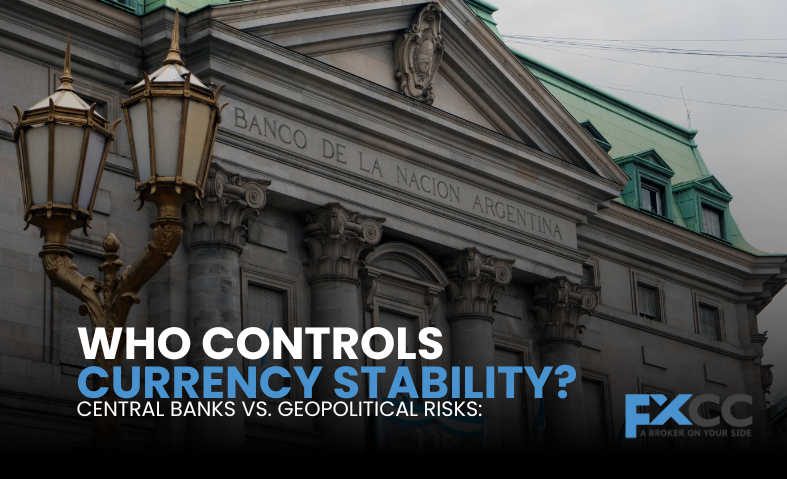Introduction to Currency Stability
Currency stability means a country’s money keeps a steady value over time. It doesn’t jump or fall quickly in how much it’s worth against other currencies. Stable money helps businesses trade, investors plan, and people save or spend without fear. But who keeps the currency steady? Is it central banks or do world events decide?
Role of Central Banks in Currency Control
Central banks are the main financial authority in each country. Their job is to keep the economy healthy, and that includes keeping the currency stable. They do this by:
- Setting Interest Rates: Higher interest rates attract investors to a currency. This can boost its value.
- Controlling Inflation: If prices rise too fast (inflation), the value of money falls. To manage inflation, central banks either tweak interest rates or reduce the amount of money in circulation.
- Using Monetary Tools: Central banks can also buy or sell their own currency in global markets to stabilize value.

They often act quietly, but their moves shape how strong or weak a currency is.
Geopolitical Risks That Impact Currencies
Even if a central bank does everything right, world events can still cause trouble. These events are known as geopolitical risks:
- Wars and Conflicts: Wars often cause fear and drive investors to move money out of risky countries.
- Sanctions and Trade Wars: When one country blocks trade with another, currencies get hurt.
- Political Instability: If a government is weak or changing too often, it shakes investor confidence.
Such risks can make a currency drop fast, no matter what central banks try to do.
How Central Banks Respond to Geopolitical Events
Central banks are not powerless in a crisis. They often react fast to world events to calm the markets. Here’s how:
- Emergency Rate Changes: They may quickly raise or lower interest rates to manage panic.
- Currency Interventions: They buy or sell money in big amounts to stop sharp falls.
- Working Together: Sometimes, several central banks act at once to support a troubled currency.
Still, the success of these steps depends on how serious the geopolitical event is.
Real-World Case Studies
- U.S. Federal Reserve During COVID-19: The Fed cut interest rates and printed money to keep the economy stable.
- European Central Bank and Ukraine War: The ECB faced high energy costs and inflation due to the war and had to adjust policies fast.
- Bank of Japan: Japan’s central bank often faces political pressure to keep the yen low to help exports.
These examples show how central banks try to stay ahead of global chaos.
The Balance of Power: Who Has More Control?
In the short term, geopolitical events often shake currency markets. Over time, central banks tend to have a stronger influence in guiding currency trends. They build trust over time with steady policies, which keeps currency stable after the storm passes.
Impact on Consumers and Investors
Currency stability affects everyone:
- Import Prices: When a currency loses value, buying products from other countries usually costs more.
- Exchange Rates: Investors can lose or gain money depending on rate changes.
- Travel Costs: Tourists pay more in other countries if their currency drops in value.
So, currency shifts hit not just big banks, but regular people too.
Can Central Banks Predict Geopolitical Risk?
No one can fully predict wars, political changes, or major world events. Central banks use data and history to guess trends, but they can’t foresee everything. Instead, they try to prepare by building strong reserves, solid plans, and flexible policies.
Conclusion
Central banks are powerful. They guide money value with tools and plans. But when war or global tension strikes, their power is tested. In the battle of Central Banks vs. Geopolitical Risks, both play a role. But in the long run, central banks often bring back order.

FAQs
1. What is the primary function of a central bank in an economy?
To manage a country’s money supply, control inflation, and keep the currency stable.
2. Can war cause currency collapse?
Yes, war can create panic and cause a currency to lose value quickly.
3. How do sanctions affect money?
Sanctions limit trade and financial flows, which weakens a country’s currency.
4. Is inflation tied to geopolitics?
Yes, events like war or trade limits can raise prices, causing inflation.
5. Do central banks always win?
Not always, but they usually regain control over time with smart policies.
6. Should investors watch central banks or politics?
Both. Central banks set long-term trends, but politics can cause sudden shocks.


